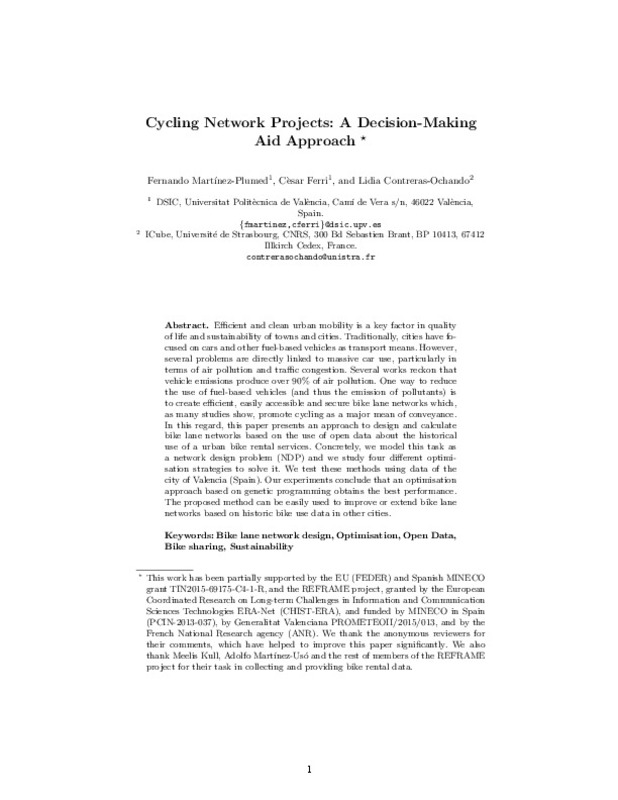JavaScript is disabled for your browser. Some features of this site may not work without it.
Buscar en RiuNet
Listar
Mi cuenta
Estadísticas
Ayuda RiuNet
Admin. UPV
Cycling network projects: a decision-making aid approach
Mostrar el registro completo del ítem
Martínez Plumed, F.; Ferri Ramírez, C.; Contreras Ochando, L. (2016). Cycling network projects: a decision-making aid approach. CEUR Workshop Proceedings. http://hdl.handle.net/10251/87734
Por favor, use este identificador para citar o enlazar este ítem: http://hdl.handle.net/10251/87734
Ficheros en el ítem
Metadatos del ítem
| Título: | Cycling network projects: a decision-making aid approach | |
| Autor: | ||
| Entidad UPV: |
|
|
| Fecha difusión: |
|
|
| Resumen: |
Effcient and clean urban mobility is a key factor in quality of life and sustainability of towns and cities. Traditionally, cities have focused on cars and other fuel-based vehicles as transport means. However, several ...[+]
|
|
| Palabras clave: |
|
|
| Derechos de uso: | Reserva de todos los derechos | |
| Fuente: |
(issn:
|
|
| Editorial: |
|
|
| Versión del editor: | http://ceur-ws.org/Vol-1831/ | |
| Título del congreso: |
|
|
| Lugar del congreso: |
|
|
| Fecha congreso: |
|
|
| Código del Proyecto: |
|
|
| Agradecimientos: |
This work has been partially supported by the EU (FEDER) and Spanish MINECO grant TIN2015-69175-C4-1-R, and the REFRAME project, granted by the European Coordinated Research on Long-term Challenges in Information and ...[+]
|
|
| Tipo: |
|







